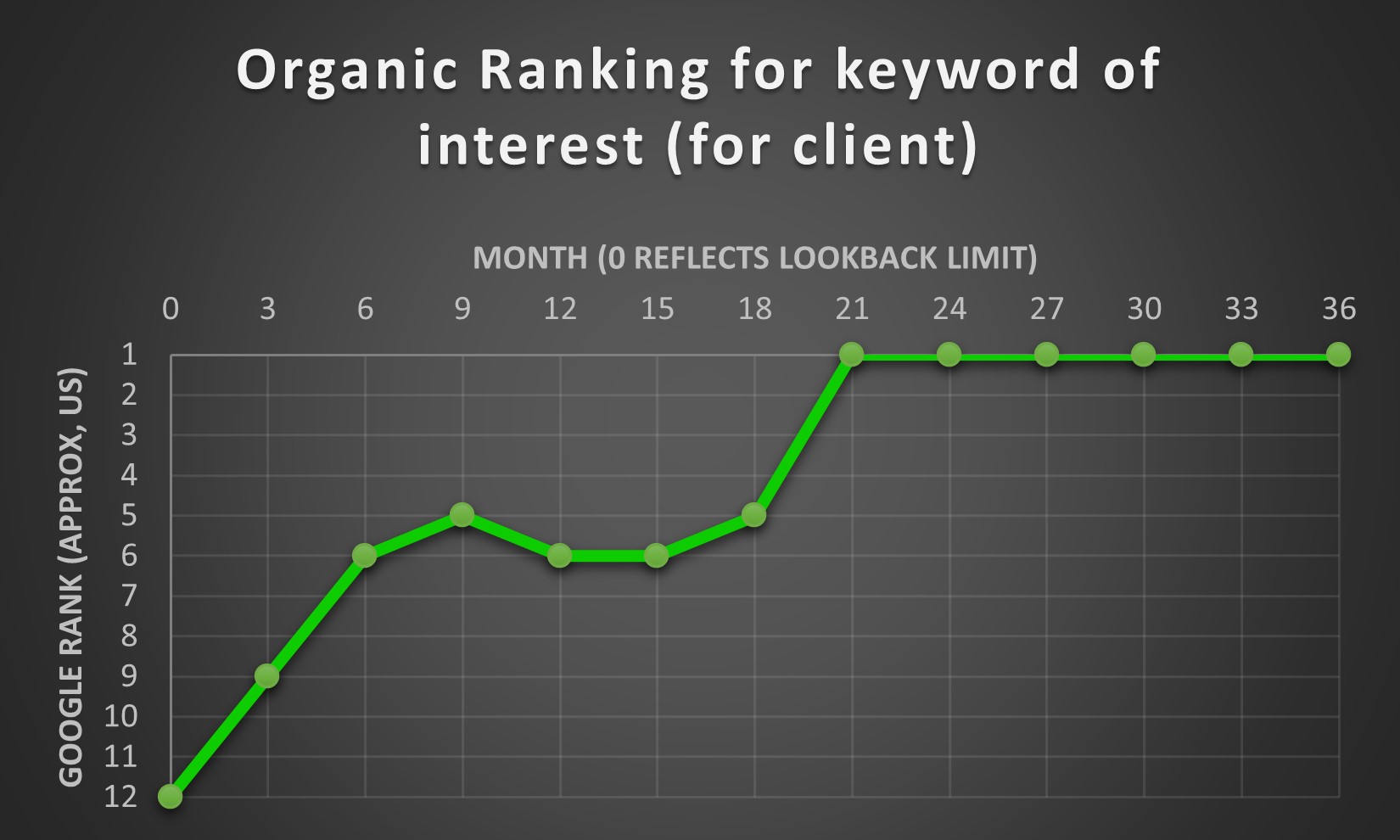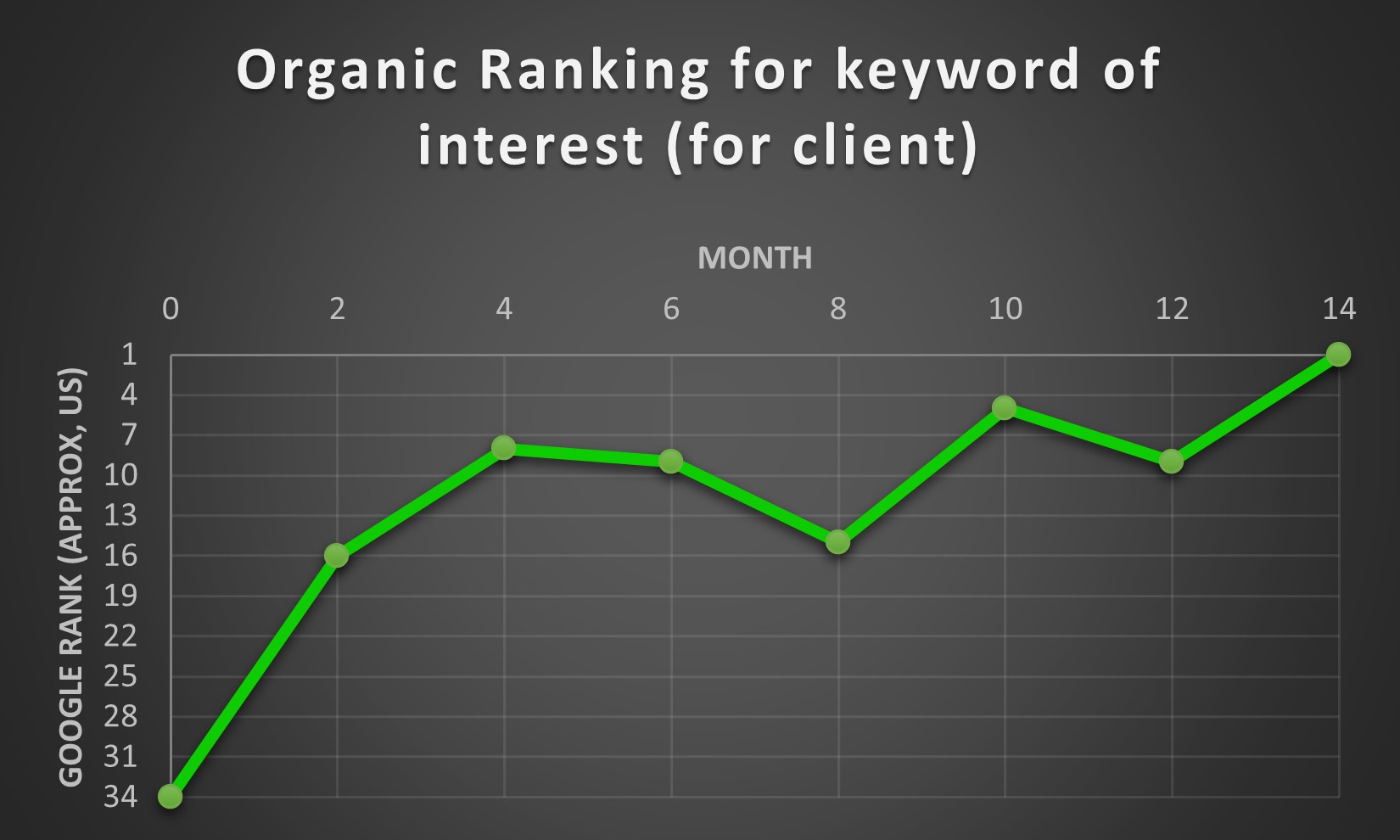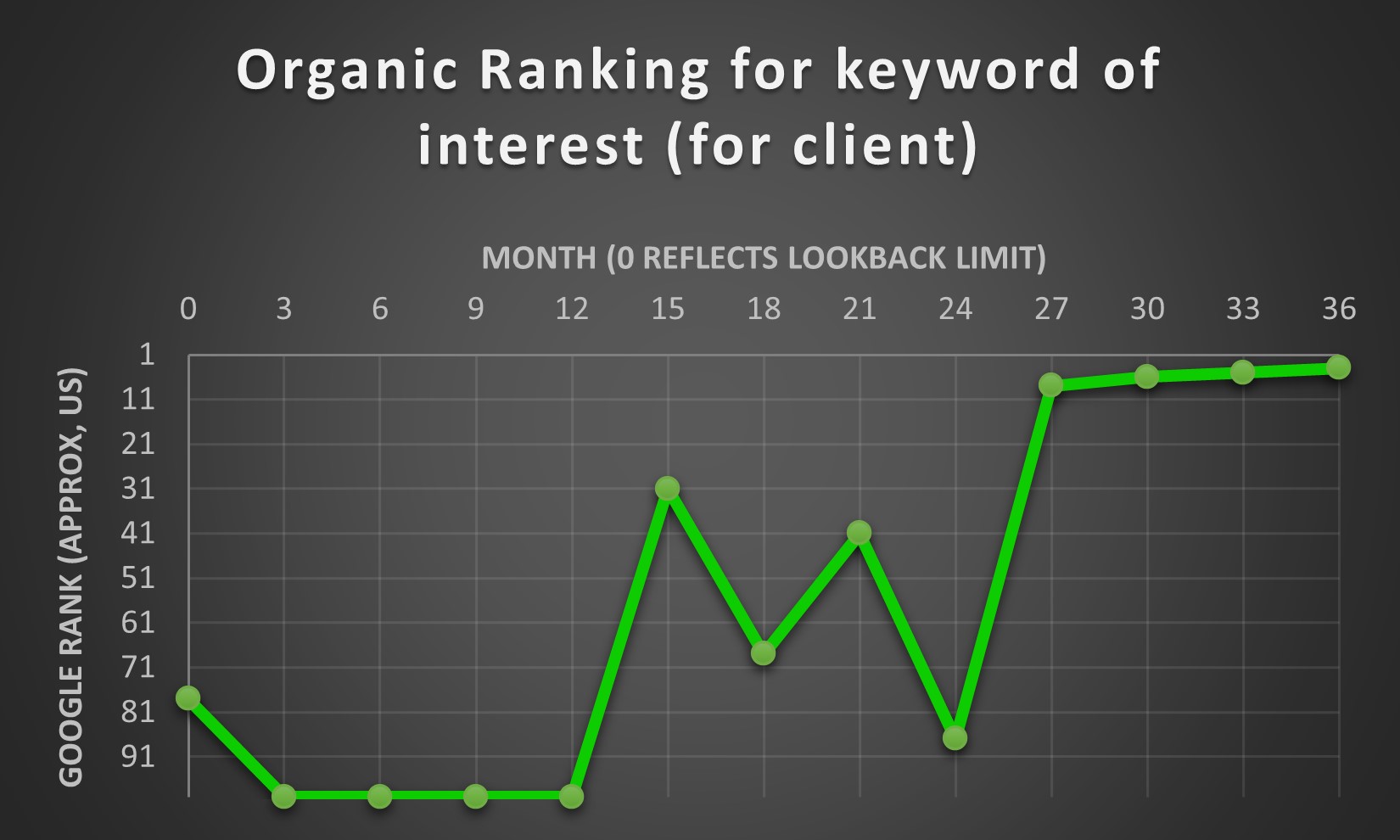SEO for Engineering
Insights and lessons learned from an engineer
Yeah, that’s right, I’m an engineer… at least I used to be. Though I’ve been told many times: “once an engineer, always an engineer”. I suppose at some level that’s true. I certainly mostly still think like an engineer, for better AND for worse 😊.
Last updated: July 4th, 2025
SEO (Search Engine Optimization) is a huge topic. Even within the narrowed scope of engineering companies, there’s a lot of important context based on where you’re at in your journey:
- your company’s culture,
- your company’s personality,
- and the level of clarity you have with respect to the types of work you do.
Let’s assume your company is a small’ish (less than ~200 employees) engineering services company, including the likes of engineering development, industrial automation, software development, IT services.
What are the main goals of SEO?
There are two potential goals for doing SEO:
- improving awareness of your company (by attracting more visitors to your website; hopefully some that are a good fit)
- attracting sales-ready leads (potential clients / customers)
Either of these are reasonable high-level goals. Both are challenging. However, engineering services companies are usually more interested in trying to attract potential clients in the form of sales-ready leads. With that in mind, most of this article looks at SEO for engineering businesses through the sales-ready leads lens, though many of these comments apply generally as well.
Some indicators that you may struggle with SEO
If you run a brand-new company and you’ve executed less than ~40 projects, SEO may be challenging for you. You may not have enough experience for patterns to emerge. You also might not have a decent sense of who you are as a company or who you want to be.
If you run a small company of less than ~10 people, you may not have the people power to keep putting in the necessary background effort. You’ll need to be creating solid content (articles, case studies, etc).
These are just rough thresholds of course, and there’s a chicken and egg aspect to this as well, but just know that the challenges may be greater than you want if you sit below these rough thresholds.
Other factors (we’ll get into some of these below) that can influence your SEO-readiness include:
- How differentiated you are in the market. This is a blue ocean / red ocean sort of thing.
- Your enthusiasm for sharing useful information.
- Your ability to articulate your perspective in a unique way.
- Your patience. SEO is a long journey.
- How much people are searching for what you’re best at.
Check out How to bootstrap your marketing for some other ideas on where to focus your energy. SEO is just one of the two main inbound marketing mechanisms. The other is paid search. Depending on your situation, paid search may be of more interest to you to start with.
The importance of the niche
You need one or more niches (see Why you need a niche, and what to do about it ). At it’s core, a niche is essentially the intersection of market problems and your capabilities / experience. For SEO, keyword clusters are an important element to defining a niche. If no one is searching for things related to your niche, you don’t have an SEO-based niche.
Start with a (relatively) small slice of the market. It’s very easy to try to bite off more than you can chew.
You probably don’t want a large slice. You want a small, more manageable piece of a pie. Perhaps smaller than you feel comfortable with.
If you can’t find a solid niche to experiment with, SEO probably should be secondary to other marketing methods for now. You can still start dipping your toe in the water, it’s just important to recognize where you’re at in your journey.
Be ready to write
A key element of the SEO success-failure spectrum relies on your ability to create engaging content that provides a solid user experience.
If you don’t have SMEs (in this case a SME could be one of the founders, a technical sales person, or an experienced engineer / developer) on staff that are interested in sharing a fair amount of knowledge from their brain, you may not want to go down this path.
That doesn’t mean your SMEs need to be polished writers (it can be a team effort, you can get help to facilitate). They don’t. But some fraction of them do need to be interested in sharing their perspective with the world.
The raw info needs to mostly come from your SME’s heads.
You likely need to build up your domain authority. To improve your domain authority, you need quality backlinks and mentions of your company. Not only will you need engaging content on your website, but you’ll want to contribute to articles on other relevant sites as well.
Are you ready for the uncertainty of SEO?
I know…. the word ‘uncertainty’ sends chills down your spine, right?
You probably like words like determinism, structure, and predictability.
SEO doesn’t abide by those preferences.
It’s not that some aspects of SEO aren’t algorithmic. Many are algorithmic by definition.
A few realities that create uncertainty:
- There are several search algorithms, and they’re wildly complex.
- The various search algs are being updated / optimized constantly, both by people, and machine learning.
- The algs aren’t quite a black box, but at least a very dark grey box. You won’t know the inner workings.
- Human behavior is an input. Human behavior is messy and nuanced.
- The market is dynamic and evolving.
- The information you can see is only partially-observable. You can tell certain things about certain visitors to your site, but there are usually lots of holes / incomplete information. And while data helps explain ‘what’ happened, it doesn’t explain the ‘why’.
There are certainly methods and metrics to help understand roughly how you’re doing in different ways. It’s just that many of them are proxies / indirect indicators.
Do you have an uncommon enough point of view?
In some cases you’ll need a relatively uncommon position / approach to / view of your slice of the world. There’s a lot of content out there. Where you fit in the market matters.
Notice I said ‘uncommon’, not ‘spectacular’ or ‘earth-shattering’.
Your content needs to be (1) useful and (2) engaging.
Your goal isn’t to blab about yourself. You need to be useful to your potential customers / clients.
Assuming you can convey useful information to your customers, the question then becomes: are you saying anything of significance differently than what’s already being said in the search results?
This is where the uncommon aspect comes into play. Can you add to the conversation (information gain)? Do you have engaging things to say about your slice of the market?
You need to engage potential clients. You want other sites to naturally link to your site (natural backlinks). For both of these reasons, you need to be engaging.
How patient are you?
If you’re not good at being very patient, you may not have the stomach for SEO.
Ranking well in search results is likely to take you years (not months), and you may never get it working the way you want to.
And, even if you do start ranking, you can’t stand still if the environment (the market, search engines) is changing.
How’s that for a tough pill to swallow?
Here are a few examples of search topics ranking over time.
There are unspoken realities abound in this data. Take all of this with a large grain of salt.
The rise to the top isn’t always pretty, it can take a long time, and it won’t last forever.



So, what now?
Scared yet? Maybe just a little? Good. That just means you’re doing a good job tracking 😊.
SEO for engineering services companies carries a lot of uncertainty.
It’s not for the faint of heart.
It requires atypical levels of patience, even for engineers.
Still interested in heading down this path?
If you want to start dipping your toe in the water, you need:
- A decent website structure to build content on top of.
- One or more niches to start exploring / experimenting with.
- To start creating good content.
Check out RocLogic’s SEO services for engineering companies and feel free to reach out if you’d like to get moving on your SEO journey.

